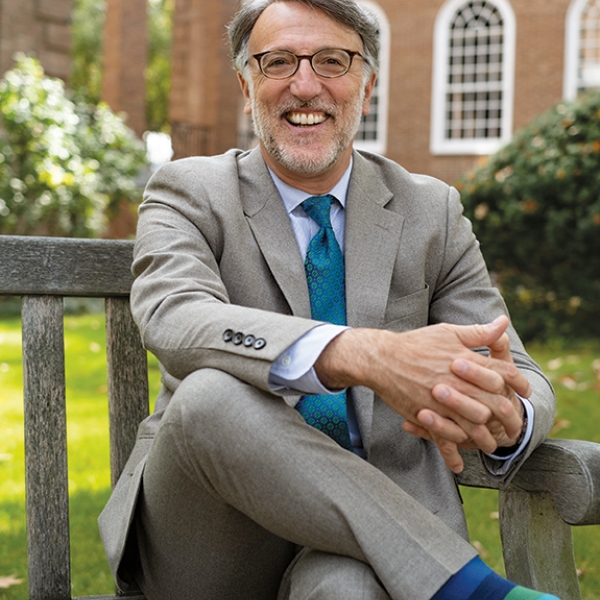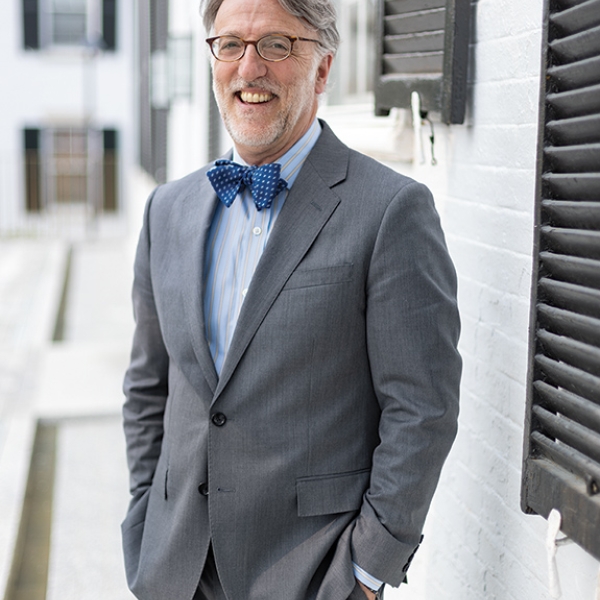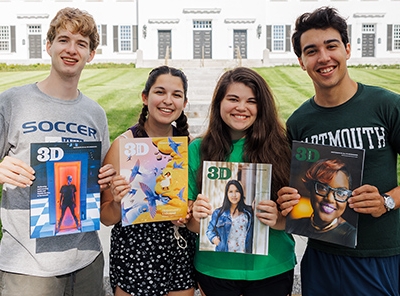Conversation animates a college community. Discussion, dialogue, and debate are enhanced by diverse perspectives and backgrounds as assumptions are challenged, ideas are considered, and new opportunities are imagined.
To me, that is the magic of college.
It's been a few decades since my own undergraduate experience, but what lingers across those years are memories of spirited discussion guided by an informed professor and late-night debates in a dorm room over a shared pizza. My suburban upbringing, my first-gen view of myself and of the world, expanded in those moments.
I listened.
I pushed back.
I stretched.
I didn't always agree with what my peers thought, but their often-impassioned comments made me consider the issues of the day in a more deliberate way. Those conversations made me a more flexible and nuanced thinker. Sometimes, I changed my mind. Sometimes, it reinforced what I knew to be true for me.
The Lee who emerged from that undergraduate space was more worldly and alert than the boy who arrived four years earlier. That type of growth opportunity might be even more essential now than it was for me in the early 1980s.
At Dartmouth, a small college where discussion-based classrooms are the norm, dialogue is foundational to who we are. Dartmouth is a college, for example, where professors from Jewish studies and Middle Eastern studies co-teach a course on Israel and Palestine, welcoming spirited debate and dialogue as they probe the nuances of history and religion and politics in that ancient region. At Dartmouth, the classroom syncs with current events.
In January, President Sian Leah Beilock announced the debut of "Dartmouth Dialogues," a new initiative that represents "our shared commitment to…facilitating conversations and skills that bridge political and personal divides." President Beilock hopes Dartmouth Dialogues will offer "training and practice for students, faculty, and staff in empathetic listening, managing emotions, navigating conversations, and finding points of connection across ideological differences."
As part of its rollout, U.S. Secretary of Education Miguel Cardona visited campus to understand how Dartmouth had navigated the early weeks of the war in the Middle East, a crisis that has roiled many campuses. The Secretary met a group of students who "highlighted examples of campus life where differences were mostly aired in a civil way without conflict," the Associated Press reported. Afterward, Secretary Cardona said, "This is what we need to see across the country."
Dartmouth's Admissions Committee values dialogue, too. As we shaped the Class of 2028, we assessed qualities that elevate interaction and engagement on campus. Ideally, our next class will seed and facilitate discussion, dialogue, and debate as students bring an openness to other perspectives as well as a demonstrated ability to raise and deepen discourse. The ability to listen, a capacity for empathy, and kindness are core qualities at this campus in the woods.
We live in a fast space. Information is everywhere. Few moments offer an opportunity to digest and assess what we see and hear and read. Navigating that reality is the opportunity of a liberal arts education.
Dartmouth prepares students for "a lifetime of responsible leadership." The promise of that mission starts with lessons in the art of dialogue, in the discovery of common ground as well as a shared purpose that moves us forward.
That is a big part of the magic of this college.
Photograph by Don Hamerman




